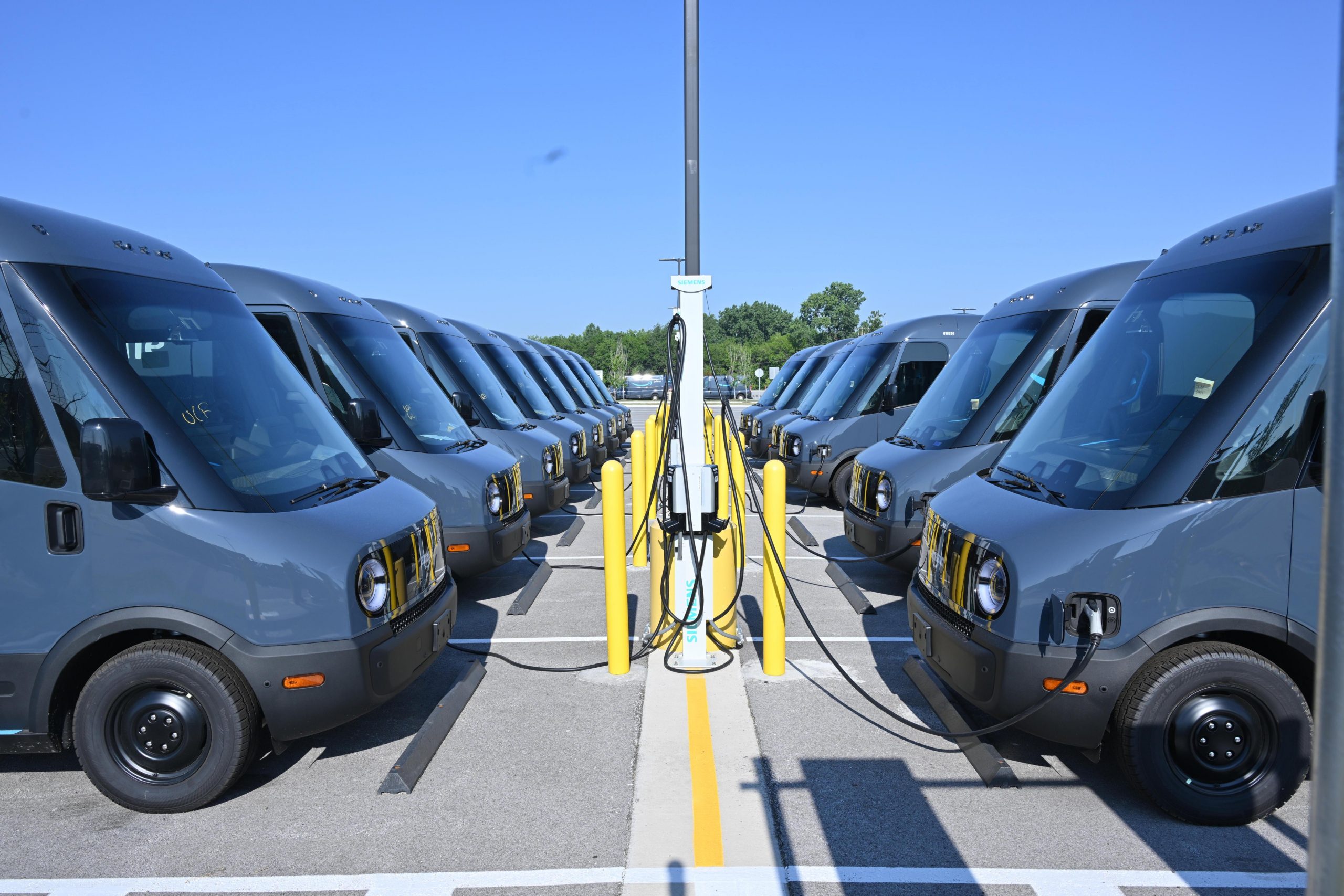Amazon has emerged as a frontrunner in decarbonizing its commercial delivery fleet, operating over 13,500 Electric Delivery Vans (EDVs) across the U.S. as part of its commitment to sustainability. The company has also established a robust charging network to support these vans, ensuring efficient operations and timely deliveries for its customers.
Manufactured by California-based EV startup Rivian, the EDVs were initially produced exclusively for Amazon. However, Rivian has since opened them up for other businesses following the end of its exclusivity agreement with Amazon last year. Despite facing challenges and delays in the initial adoption of the Rivian EDVs, Amazon’s approach has now become a model for other companies looking to electrify their fleets.
One of the major hurdles Amazon faced was providing a reliable charging infrastructure for its fleet. The Rivian EDV, with a gross vehicle weight rating (GVWR) of 9,350 pounds, requires frequent charging due to its heavier weight compared to light-duty electric cars. To address this, Amazon established an extensive charging network at its warehouses, installing 17,000 chargers at 120 locations across the U.S. in just two years, making it the largest operator of private charging infrastructure in the country.
Installing thousands of chargers required significant coordination with utility companies to anticipate and meet the power needs of the charging stations. In some cases, like at an Amazon warehouse in Chicago, repurposing old transformers and routing additional power were necessary to support the new charging infrastructure.
Amazon also took steps to streamline operations, managing subcontractors who rotated vans among charging dispensers in-house to improve efficiency. Drivers have praised the EDVs for their smooth driving experience, advanced features such as 360-degree cameras, and comfortable cabins, which have contributed to a positive reception of the vehicles.
Despite these advancements, Amazon still has a long way to go to realize the full environmental and cost benefits of its EDV operations. The company’s long-haul transportation remains carbon-intensive, and the impact of decarbonizing last-mile deliveries in select cities is limited in reducing Amazon’s overall emissions, which have increased by 39% since 2019.
Nevertheless, Amazon’s success with the Rivian EDVs has sparked interest from other companies, with telecom giant AT&T and DHL among those planning to integrate these vehicles into their fleets. This ripple effect is expected to create a net positive impact on emissions across the cargo hauling industry, further driving the adoption of electric vehicles for commercial use.

